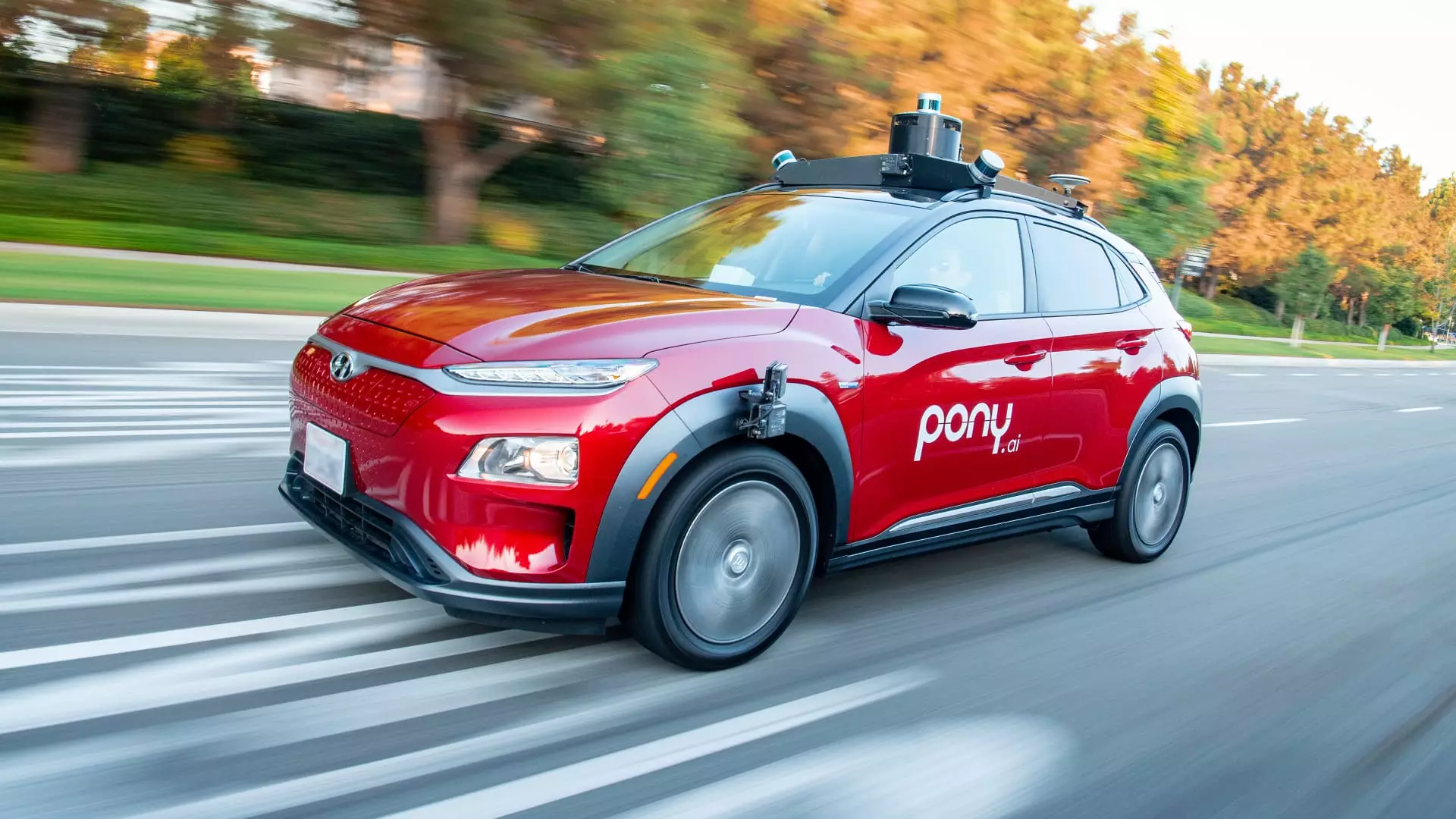In the burgeoning tech landscape of China, autonomous driving has emerged as a critical frontier for innovation, reflecting the country’s aggressive pursuit of advanced technology. Pony.ai’s recent announcement regarding a partnership with Tencent Cloud represents not only a leap for the start-up itself but a significant pivot point for the overall industry. As these two powerhouses synergize their resources, they are set to carve out a new paradigm for robotaxi services. The ramifications of this move extend far beyond the companies involved; they resonate with implications for global trade, technological rivalry, and the very future of urban mobility.
Despite the growing buzz surrounding autonomous vehicles globally, China’s ambitions in this space are particularly noteworthy due to their scale and pace. By weaving its robotaxi services within Tencent’s influential WeChat platform—a quintessential ‘super app’—Pony.ai is navigating a crucial intersection of technology and user accessibility. This sort of integration isn’t just about convenience; it’s a bold statement about how tech companies can influence urban mobility on an unprecedented scale.
A Powerhouse Alliance
What makes this partnership particularly fascinating is the mutual acknowledgment of strengths. Pony.ai stands out with its pioneering work in autonomous vehicle technology, while Tencent brings to the table extensive cloud services and mapping capabilities that are second to none. As Pony.ai’s CEO, James Peng, highlighted at the Shanghai Auto Show, the collaboration embodies a “win-win” scenario. But is it truly just about the synergy?
There is an underlying competitive tension between the United States and China regarding technological supremacy, especially in sectors categorized as crucial for national interest. While Pony.ai aims to reinforce its foothold in the Chinese market, it is not impervious to the increasing trade tensions that could stymie its ambitions in the U.S. market. As technology becomes a vehicle for geopolitical maneuvering, this partnership feels less like an isolated endeavor and more like a strategic chess move in a wider game.
A Growing Significance of Smart Mobility
For millions of users within Tencent’s vast ecosystem, the prospect of accessing a Pony.ai robotaxi directly through an app they already use daily is not just a convenience—it’s a demonstration of how smart mobility can reshape human experience. The promise of L4-level autonomous driving means an unprecedented focus on safety and efficiency, allowing passengers to disengage from the act of driving in designated areas. However, the shift towards higher levels of autonomous systems also heightens the stakes for regulatory scrutiny and public trust, which remain precarious in both developed and emerging markets.
The potential for WeChat to become a one-stop hub for robotaxis, payments, and communications is enticing. Nevertheless, is this extensive access merely a stepping stone towards monopolistic control over personal mobility? The implications of such a bathroom stall argument evoke necessary discussions around data privacy, user consent, and the responsibilities of tech giants toward their users. The line between a powerful utility and overreach can become blurry in the blink of an eye.
Challenges Ahead: Trade Tensions and Market Dynamics
The partnership may bolster Pony.ai’s cachet in its homeland, boasting of the first permit to operate fully driverless taxis while charging fares in Shenzhen. Yet, as James Peng indicated, it’s a delicate balancing act. The looming specter of strict regulations and trade tensions with the U.S. casts a shadow over its international ambitions. The fear of a secondary listing could be a precursor to an existential crisis, particularly if U.S. policymakers impose punitive measures limiting foreign firms’ operational capacities.
To compound the challenge, American tech companies are also ramping up their efforts in autonomous tech, making Pony.ai’s tactful maneuvers essential in navigating a crowded field. The strategic insights from this partnership must not only be about addressing current capabilities but also anticipating future developments in artificial intelligence and autonomous transport.
The trajectory of Pony.ai and Tencent’s partnership signals both a moment of opportunity and a potential storm. As we navigate this narrative, one thing is clear: the future of robotics is not a solitary endeavor. It requires a coalition of innovation, strategy, and ethics, and the outcomes will undoubtedly ripple through the tech and economic landscapes for years to come.

